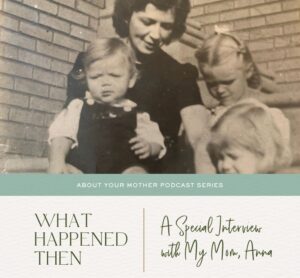Christy Warren never imagined the unexpected twist her career would take. The weight of her experiences as a firefighter ultimately led to an unexpected battle with PTSD, but her resilience and honesty shed light on the often overlooked emotional toll that many frontline workers face. As she opens up about her journey, Christy’s raw account brings to light the urgent need for comprehensive mental health support within the first responder community. Listen in as Christy’s story sparks a greater understanding and support for those who selflessly serve and protect our communities.
If you or a first responder you know are battling PTSD, reach out to their department for guidance on support. The West Coast Post-Trauma Retreat is another powerful resource to consider.
Meet Christy
Christy Warren is a retired fire captain from the Berkeley Fire Department in California.
She has twenty-five years of service as a professional paramedic and a professional firefighter/paramedic. After being diagnosed with PTSD in 2014, she retired from the fire service; since then, she has become a triathlete, completed the Escape from Alcatraz swim six times, and earned a bachelor’s degree in business from Washington State University. She is a volunteer Peer at the West Coast Post-trauma Retreat and hosts the podcast, The Firefighter Deconstructed. She lives in Pleasant Hill with her wife, Lisa, and dog, Harriet.
A tender, loving heart can only withstand so much tragedy and so much pain while shoving every normal reaction away. – Christy Warren
First Responders: The Heroes of Our Community
From the lack of guidance on handling distraught family members to the aftermath of tough decisions made on the job, Christy paints a raw and relatable picture of the struggles faced by first responders. She describes how the weight of these experiences eventually led to her own battle with PTSD, highlighting the toll it took on her mental health and personal life.
Christy’s story is a poignant reminder of the often-overlooked emotional challenges that first responders encounter. Her candid account serves as a powerful call for greater awareness and understanding of the impact of trauma on those who selflessly serve and protect.
The Emotional Burden that First Responders Take On
First responders often operate in high-stress environments that require an immense amount of resilience and mental fortitude. Amidst their duties and responsibilities, they are exposed to various traumatic experiences, exacting an emotional toll that often goes unnoticed. The crux of the challenge lies in the fact that they are generally well-equipped regarding operational preparedness, but emotional preparedness often takes a setback.
Emotional preparedness is an integral part of the training that is often overlooked, but it has profound implications on their mental health and ability to effectively carry out their duties. Christy Warren delves into this aspect, unearthing the painful realization that traumatic experiences couldn’t have been anticipated with any amount of training. She shares a distressing experience of responding to the death of a toddler, which left an indelible impact on her emotional health. Christy articulates the feeling of being underprepared to handle the profound grief of the grieving parents, underscoring the need for emotional preparedness in first responders’ training.
The Impact of PTSD on First Responders
Post-Traumatic Stress Disorder (PTSD) is a serious mental health problem that often goes unrecognized and untreated in the first responder community. Many first responders confront harrowing situations on a daily basis, which can lead to the onset of PTSD symptoms. These symptoms can include persistent nightmares, severe anxiety, uncontrollable thoughts about the traumatic event, and emotional distress.
Left unchecked, PTSD can impact the first responder’s personal and professional life severely. Christy Warren illustrates this point by sharing her personal encounter with PTSD. She shares how a particular call triggered a breakdown in her ability to compartmentalize her traumatic experiences. It was at this point that she realized that her mental box of suppressed emotions was spilling over. Recognizing the need for intervention, Christy sought help and embarked on her path to healing, highlighting the significance of professional assistance in dealing with PTSD.
The Need for Mental Health Advocacy
First responders are often reluctant to seek help due to fear of stigma, job repercussions, or appearing ‘weak’. Addressing mental health and overcoming the stigma associated with it is crucial in fostering psychological well-being among this group. This calls for a cultural shift and dedicated mental health advocacy, with a focus on emotional openness and support from leadership.
Christy Warren highlights the suppressed emotions and the cultural expectation of resilience amongst first responders and first responders alike. Acknowledging and addressing mental health struggles can bring significant improvement in the life and well-being of the first responder community. Her ongoing work in mental health advocacy and her advocacy for a more open dialogue surrounding PTSD is an inspiration for others.
Access to Therapeutic Resources and Self-care
Having access to therapeutic resources is a critical aspect of supporting mental well-being among first responders. Culturally competent therapists who understand the unique experiences of first responders can help address their traumatic experiences and facilitate healing. Equally important is the emphasis on personal self-care and finding healthy coping mechanisms outside of work.
Christy Warren, in her pursuit to heal, found solace in therapy and self-care activities like swimming, which she described as being soothing and peaceful. Her journey underscores the significance of balancing professional demands with personal well-being. This calls for more attention and resource allocation towards providing therapeutic resources and encouraging self-care among the first responder community.



